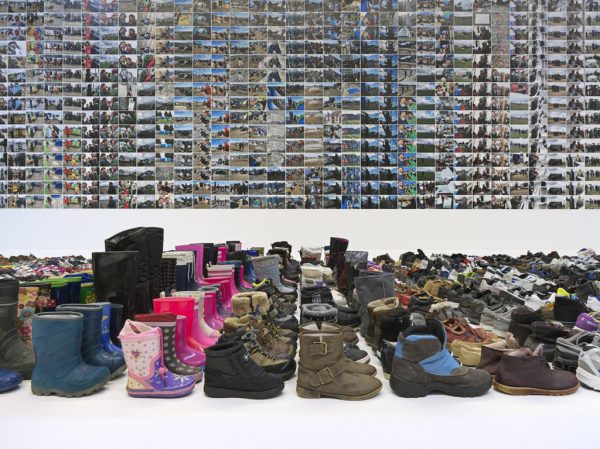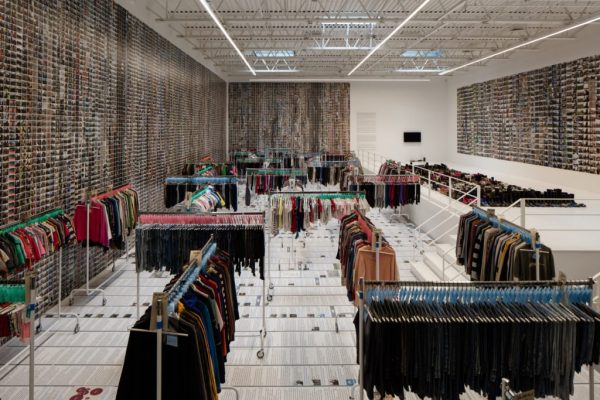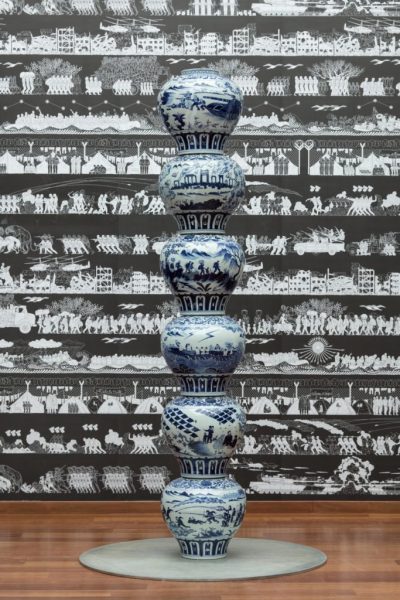Chinese artist Ai Weiwei is taking his international campaign to express solidarity with the world’s refugees to the Gulf, has opened his first exhibition in the region this month in Qatar. It includes a large-scale installation Laundromat (2016), featuring a collection of thousands of items of clothing worn by refugees, many from Syria attempting to reach asylum in northern Europe.
The show is at the Fire Station in Doha, Qatar, opened on March 15 and runs through June 1. The exhibition follows on the heels of Ai’s expansive exhibition at the Israel Museum in Jerusalem, which closed on March 3. It is a particularly charged time for a show in Doha by China’s most famous activist-artist, who is now based in Berlin. The Saudi-led blockade of Qatar is ongoing. (Qatar denies its neighbor’s claims that it has helped finance terrorists.)

Laundromat is a powerful work, a display of 2,046 articles of clothing that have been washed, steamed, and organized, after being salvaged from the abandoned refugee camp in Idomeni in northern Greece, which borders on the former Yugoslav Republic of Macedonia. The items are displayed alongside personal mementos and photographs, as well as the film Idomeni (2016), which captures the everyday conditions of the refugees before the camp was evacuated.

“The harsh reality can act as evidence and make us reflect on these conditions. This is a situation many people refuse to see, or try to distort or ignore,” says the artist. “Many wilfully believe this isn’t taking place. When you see so many children out of school—263 million children worldwide—you can’t easily predict what our future holds.”
Idomeni featured prominently in Ai’s feature-length documentary about the global refugee crisis Human Flow, which was released last fall.

While Qatar has been praised by the UN High Commissioner for Refugees for funding humanitarian relief it notes that the gas-and-oil rich kingdom could do more. According to The New Arab papers, in 2017 Qatar was the largest donor in the Middle East and North Africa, having contributed more than $26 million to the UN’s refugee agency. But it has not ratified the UN’s 1951 Refugee Convention giving basic rights to those fleeing political persecution. Also, citizenship is not automatically granted to children born to Qatari women and non-Qatari men, human rights campaigners point out.
